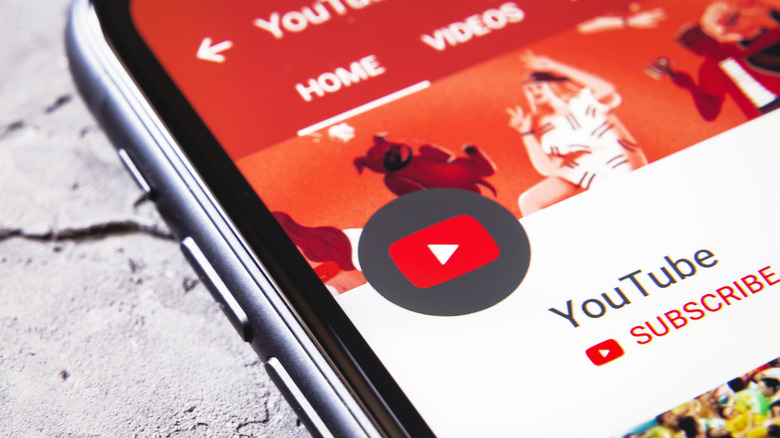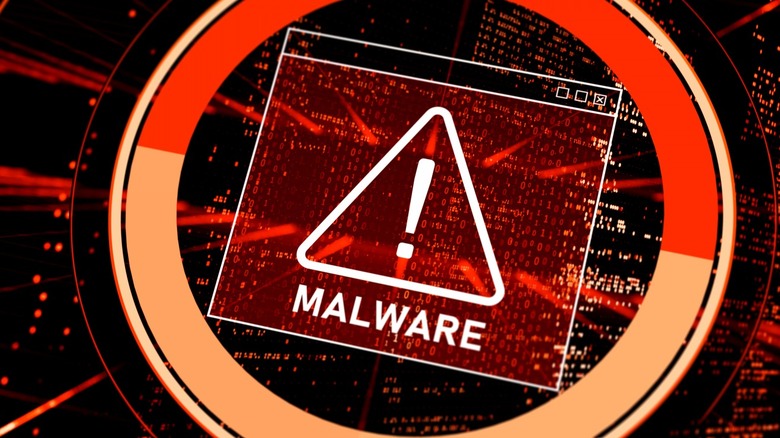What To Consider Before Downloading YouTube Videos With A Free Downloader
YouTube does allow you to download videos, but only through YouTube Premium officially — and only if the creator permits it. Whatever videos you try to download will remain in your Downloads inbox. That means that while you can view some of your favorite videos offline, you can only access them via the app. That said, humans have a remarkable ability of finding a way around things.
There are third-party apps and online services you can use to download whatever YouTube video you need to save directly to your device. While these free downloaders promise to do a good job, there are a few things you need to consider before installing one.
Are they safe or even legal to use? Are you breaking any laws or risking the termination of your YouTube account by using one of these free downloaders? Here's a list of some of the important things we think you need to consider before trying out any of the options online.
Is it safe?
You should always be careful which apps you download and install on your devices, especially for something capable of downloading files to your device. The same goes for the websites you choose to visit as well. How can you even verify that it's safe to use an app? For starters, there might be signs that the app is fake.
The same way you would look online for reviews about a new restaurant you want to try out is exactly how you need to research what other users online are saying about the downloader tool you'd like to try. No matter how nifty a tool or service seems, you should take care not to expose your device to any malware. That's a huge risk with many of these third-party apps and online tools like YouTube video downloaders.
Even if they're not malicious, poorly maintained software can also be prone to security flaws that hackers might exploit. If these free downloaders aren't receiving regular updates or support, they become more vulnerable over time. Consider the safety of your device before downloading any apps.
Different software and web tools have different privacy policies. Some may collect your personal information or browsing data, and when they do, most times what they use it for or who they sell it to is out of your control. Understand what data is collected and how it is used. If a downloader app asks for too many permissions, that's a red flag.
Is it truly free?
Nothing free is ever truly free. Free apps and websites often rely on ads for revenue, but the problem is these ads can be intrusive. They can really ruin your user experience, and in some cases, constantly redirect you to malicious and scam websites.
Free versions of downloaders may also limit the resolution of the videos you can download or the number of downloads available. This limitation is usually a way to persuade you to upgrade to the premium version. If you are considering upgrading to a paid version, be cautious of recurring charges or subscriptions that may be difficult to cancel. Only pay for YouTube downloading software or apps you can trust.
Another issue is the lack of subtitles or transcript support. Transcripts and subtitles seem like small details, but they're an essential part of the viewing experience, especially as an accessibility feature for viewers who rely on them due to hearing impairments or generally for better understanding.
These details are often overlooked by free downloaders, meaning you might need to use additional services — potentially at an extra cost or more effort — to access transcripts or subtitles. There's also no guarantee of its accuracy or if you can achieve a perfect sync between the video and subtitle.
Is it fair to the creator?
YouTube generates revenue from views and ads to pay out to its monetized creators. Each video that content creators upload on the platform nets them a slice of that revenue YouTube pulls in. When people decide to use third-party tools to download these videos instead of streaming them, those creators will miss out on additional views. It can seem as though anyone who watches YouTube outside of the platform is disregarding the effort and creativity content creators put into making their videos, depriving them of the reward they deserve for their effort.
It's important to recognize that content creation involves time, effort, and, in many cases, considerable financial investment. Many creators, recognizing that the audience might want more, often provide links to download their content legally, sometimes through other platforms or directly from their own websites. Keep this in mind when you watch your favorite YouTube creators: this way, you can support the creators while also staying within legal boundaries.
Can you easily organize your downloads?
The ease of organizing downloads is a significant advantage of using YouTube's downloading feature. With YouTube Premium, downloads are automatically organized in a dedicated section within the app, making them easy to find and access. That said, this feature isn't available unless you're paying Google monthly for the privilege of YouTube Premium.
On the other hand, despite third-party downloaders being free, you have to do the file organization and preparation yourself. This requires way more effort and time in comparison, especially if you're dealing with several videos you have downloaded or would like to download. It'll also be even harder to manage these files between different devices if you intend to view offline YouTube videos on more than just desktop or mobile devices. You'll also need sufficient storage space on your device(s) because video files can be quite large compared to anything else on your hard drive.
Is it legal?
The only completely legal way of downloading YouTube videos is through YouTube Premium. Many videos on YouTube are protected by copyright, and downloading them without permission is a violation of YouTube's terms of service, and is also potentially illegal.
Third-party YouTube downloading sites and apps often state in their terms of use that you, the user, are solely responsible for the legal consequences of your actions. Their disclaimers often make it clear that they will not be liable for your actions since all they've provided is the technical means. Although cases of private users getting sued by YouTube are rare, it's not impossible.
Aside from all the legal stuff, YouTube's terms of service explicitly prohibit downloading videos from its platform using unauthorized means, including third-party software. If detected, this could lead to consequences such as suspension or even the termination of your YouTube account.
Now that you're aware of these risks, consider them before using any free YouTube video downloader. If you use your YouTube account regularly in any personal and professional capacity, losing access to the account can be devastating.





